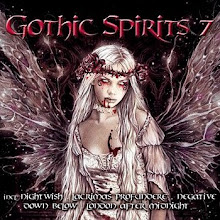Gothic is the same as goth, Gothdom, gothik etc. The only difference is noun or adjective use. Capitalization is often arbitrary. There is no general distinction between these terms. Any distinction made is often particular to a certain person or group who might use a different term to designate one of the different levels of involvement or divisions of gothics. For our purposes, we'll say these words are all intended to mean the same thing.
Gothic: Of or pertaining to a literary style of fiction prevalent in the late 18th and early 19th centuries which emphasized the grotesque, mysterious, and desolate: a gothic novel. [This is the relevant definition in the dictionary. Think of Mary Shelley's Frankenstein and the works of Edgar Allen Poe.] But what does gothic mean in regards to the group of people? Here's where it gets confusing. There are things that many Goths like that are not gothic (Industrial or Classical music). There are things that are gothic that many Goths dislike (vampires, interest in death). There are things that some people think are gothic that are not gothic (bands like Marilyn Manson and Nine Inch Nails), and there are things that do not call themselves gothic even if they are considered gothic by most people (bands like Sisters of Mercy and Dead Can Dance). However, there's no Grand Gothic Judge to decree what is truly Goth and what is not, although there are plenty of people who claim to be it. It's an ambiguous label with many people using it that don't understand what it means. The people who do understand it often have many different definitions. People have accused or described Goths as being: Some of the above probably apply to some Goths, but definitely not to all.
History and background:
Stereotypes:


No comments:
Post a Comment